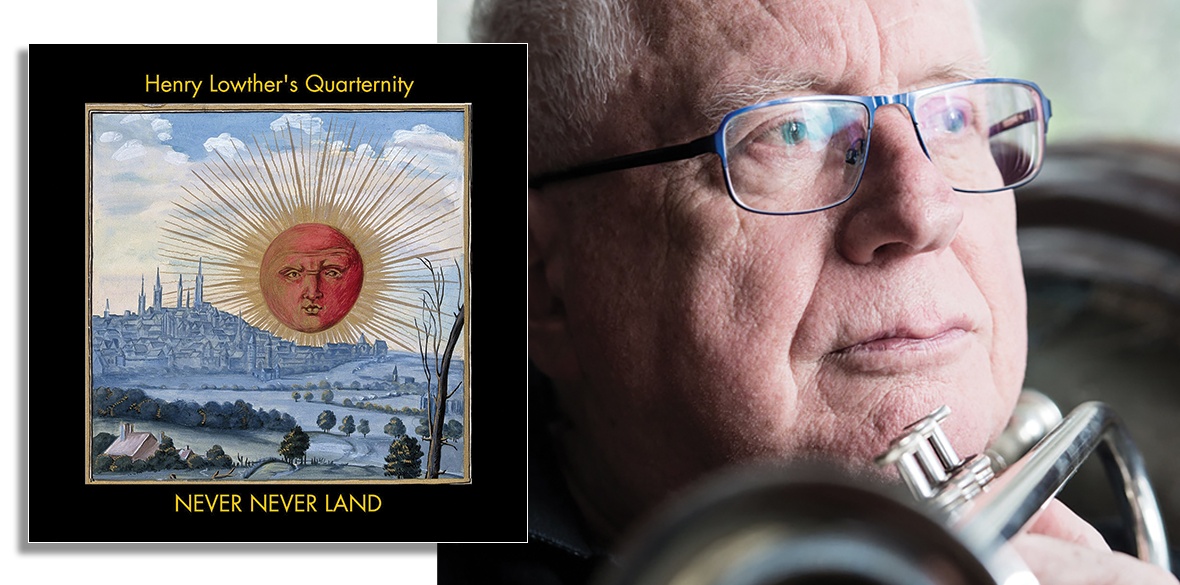This is the last article you can read this month
You can read more article this month
You can read more articles this month
Sorry your limit is up for this month
Reset on:
Please help support the Morning Star by subscribing here
“MUSIC has been my whole life and I don't seem able to stop. Nor do I want to.” So declared veteran trumpeter and violinist Henry Lowther about his lifetime in jazz.
Born in Leicester in 1941, his father was an ex-coal miner made redundant in County Durham in 1936, who moved to Leicester and worked as a labourer and car sprayer. His mother was an occasional cleaner and school dinner lady.
“I did come from a musical home as my father and his two brothers were Salvation Army bandsmen. My first exposure to music was listening to brass bands, although as a teenager I liked classical music.
“My father started teaching me to play the cornet when I was about five or six and I started on violin at 13. I played cornet in a Salvation Army band and violin in the Leicester Symphony Orchestra.
“My first jazz inspiration was a recording of Sonny Rollins, although I became interested in jazz at about 20 after listening to Indian classical music.”
His protean musical influences also stretched into pop, and he made his first recording with the Do Wah Diddy Diddy outfit, Manfred Mann. “There was never a single moment when I became professional,” he remembers, “I just moved sideways into it, but the last time that I had a ‘day job’ was in 1968.”
I asked him how much he had been influenced as a young jazzman by US musicians. “It was natural to be influenced by them. As a young musician I never consciously tried to be original and I don't think my fellow musicians did either. Clifford Brown, Miles Davis, Louis Armstrong, Kenny Dorham, Fats Navarro, Booker Little have influenced me throughout my life.”
Recorded between 1974 and 1978 and now at last released, is the double album Never Never Land by the Lowther-led band, Quaternity. It’s a jewel of past jazz times by an ensemble of close confreres. “As so often in jazz, the instrumentation of the band was simply a product of wanting to play with friends and with musicians you admire. I also liked the open and economical sound of a band with a guitar, but without piano.”
The album’s later tracks brought in the powerful saxophones of Art Themen and Alan Wakeman, but on the 1974 tracks Lowther is the lone horn with guitarist Phil Lee, bassist Dave Green and drummer Trevor Tomkins.
“Phil was a wonderful guitar player and I’ve no idea why he never became better known and appreciated. Perhaps it was because of his shy and introverted personality and that he was never pushy or ambitious in any way. Dave Green, as well as being an amazing bass player, is also one of my closest friends. Playing with him is always joyous. He always gives to the music everything that a bass should give — great time and notes, and he swings! And Trevor Tomkins was the ideal drummer, playing with great sensitivity and a perfect feeling for dynamics.”
As for Lowther, the lyricism and lucid poise of his hornsong brings back to me the artistry of Art Farmer, or even further back, Bill Coleman’s free-wheeling sound.
All the tunes on the album are composed by Lowther and Lee, with Third World Song, written at a time when new nations in Africa were struggling to free themselves, having a sharp topicality. Lee, Green and Lowther all solo on the first version, and on the 1976 run-out, Wakeman’s soprano saxophone adds its commentary.
As well as a jazz lifetime in small bands, Lowther’s extraordinary versatility and musicianship have made him a must in many a big band and large ensemble performances led by Johnny Dankworth, Kenny Wheeler, Barry Guy’s London Jazz Composers’ Orchestra, Keith Tippett and Gil Evans. “I enjoy rising to the challenge of ensemble discipline, playing written music while also enjoying their excitement and colourful sound.”
As for now-times, Lowther and Green are still playing together into their 80s still creating sound and swing with their irrepressible virtuosity in their band Still Waters. Don’t miss them next time they’re down your way, still performing with an inspiring sense of youth and fire.
Never Never Land is released by Jazz in Britain Records.












